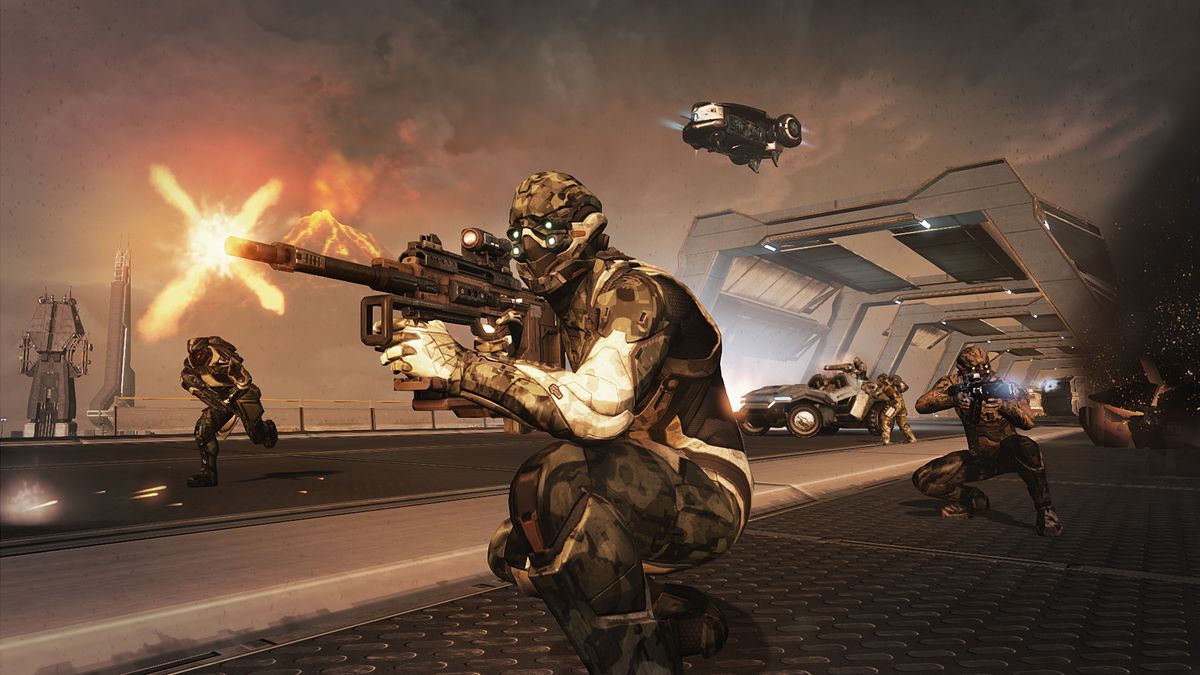
CCP knows Dust 514 should never have been a console exclusive: 'If we had been on PC the whole time the game would literally be alive'
EVE Online director Snorri Árnason says the developer has some serious unfinished business in the FPS genre.
At EVE Fanfest, PC Gamer had the chance to sit down with EVE Online's game director Snorri Árnason for a wide-ranging conversation about where the game has been in recent years and where it's going. But in terms of big announcements, Fanfest's highlight for many EVE fans wasn't the main game itself, but CCP's return to the FPS with EVE Vanguard, a PvPvE looter-shooter that links to EVE Online itself and is a successor to 2013's ill-fated Dust 514.
Árnason himself has a lot of love for Dust 514: even though he was already working for CCP, it ended up being his route into EVE proper. "I started working at CCP in 2007," says Árnason, "because they were the first and only gaming company in Iceland. I was a huge gamer, primarily an FPS player, but also Ultima Online and later Warcraft. So I started working [at CCP] because it just sounded cool. I could have gone into literally anything like banking or fishing because I was an engineer, and a scientist, fundamentally."
He spent years working on EVE Online and went into the "deep rabbit hole" of understanding it without playing himself, but early development of Dust 514 was where he fell in love. "Playing Dust, basically, as an alpha tester while we're making it back in 2011," recalls Árnason. "And that game is… I love that game. That was basically the start of the whole passion. I spent endless money and time on it myself. Eventually I moved to Shanghai [Dust 514 was developed by CCP Shanghai]. And then I came back [to Iceland] five years ago."
I wouldn't say I loved Dust, but I did like it and, as happens with all games that don't quite make it, its subsequent reputation is a little unfair. I ask Árnason what he especially liked about it. He says a big thing for him is the idea of permanence in a game, with consequences and effects for what you're doing. "I don't want to be gamified," says Árnason. "So like, when, when the game tells me to reset, or to go to number two [a sequel], I don't like that idea. I just want to be in the game. So that really appealed to me, but also just the factions and the themes and it just felt grounded, realistic, a good backstory, good enemies, everything else. And like, it felt like it was a game that could grow endlessly, so that's why I kind of bought so much into it."


